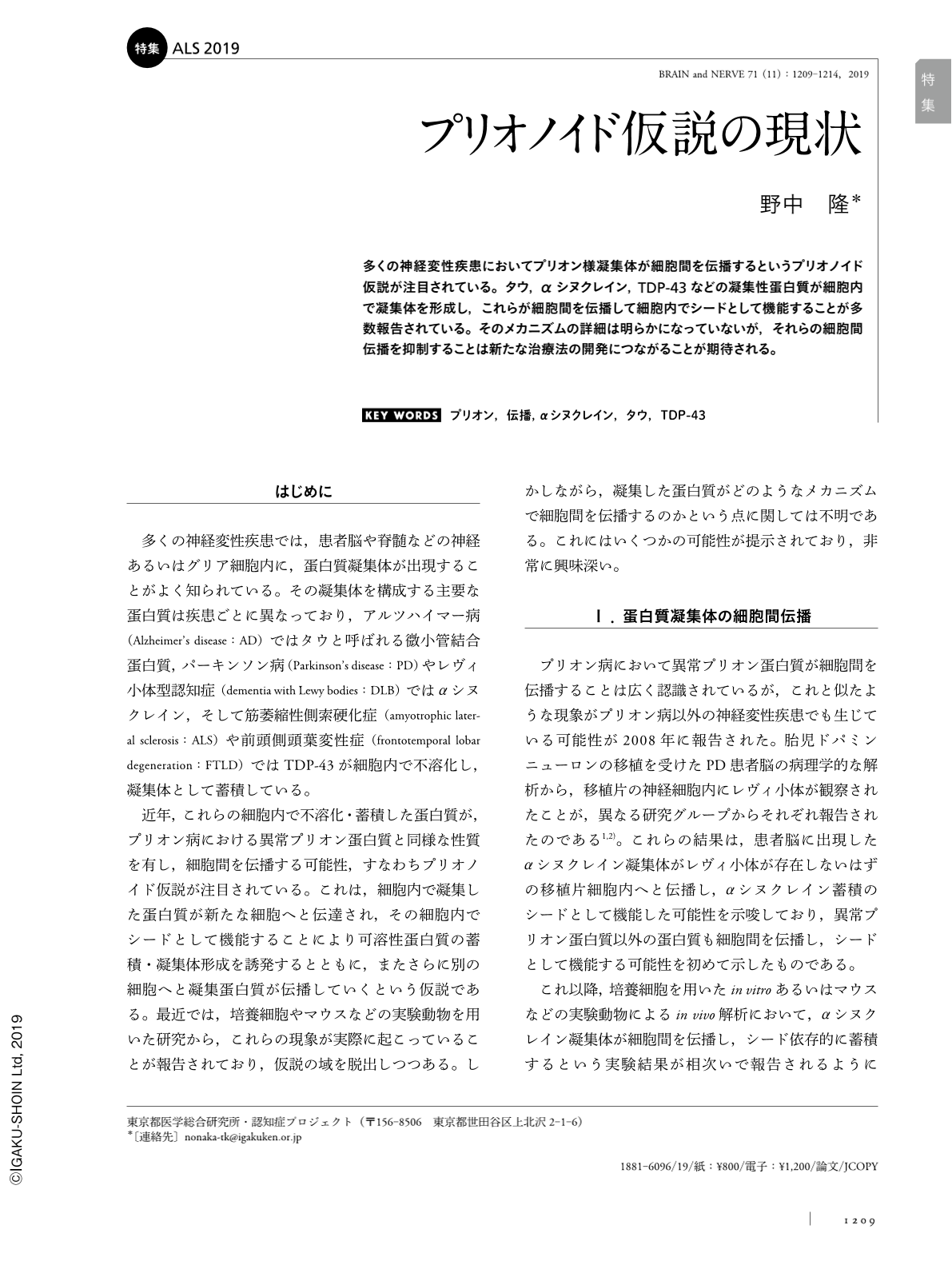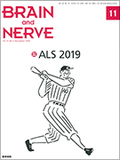Japanese
English
- 有料閲覧
- Abstract 文献概要
- 1ページ目 Look Inside
- 参考文献 Reference
多くの神経変性疾患においてプリオン様凝集体が細胞間を伝播するというプリオノイド仮説が注目されている。タウ,αシヌクレイン,TDP-43などの凝集性蛋白質が細胞内で凝集体を形成し,これらが細胞間を伝播して細胞内でシードとして機能することが多数報告されている。そのメカニズムの詳細は明らかになっていないが,それらの細胞間伝播を抑制することは新たな治療法の開発につながることが期待される。
Abstract
The most common neurodegenerative diseases, such as Alzheimer's disease, Parkinson's disease, and amyotrophic lateral sclerosis, are known to be protein-misfolding diseases, and characterized by the presence of disease-specific protein aggregates in neuronal and glial cells. Recently, the propagation hypothesis of prion-like protein inclusions in neurodegenerative diseases has been proposed. Many studies have shown that aggregation-prone proteins such as tau, alpha-synuclein and TDP-43 can form aggregates in a seed-dependent and self-templating prion-like manner, and these aggregates can be transferred intercellularly to neighboring cells and seeded for further aggregation. Propagation of aggregated proteins in these diseases may therefore occur through mechanisms similar to those that underlie prion pathogenesis. If this hypothesis is verified in vivo, it will suggest new therapeutic strategies to block the propagation of aggregated proteins throughout the brain.

Copyright © 2019, Igaku-Shoin Ltd. All rights reserved.


